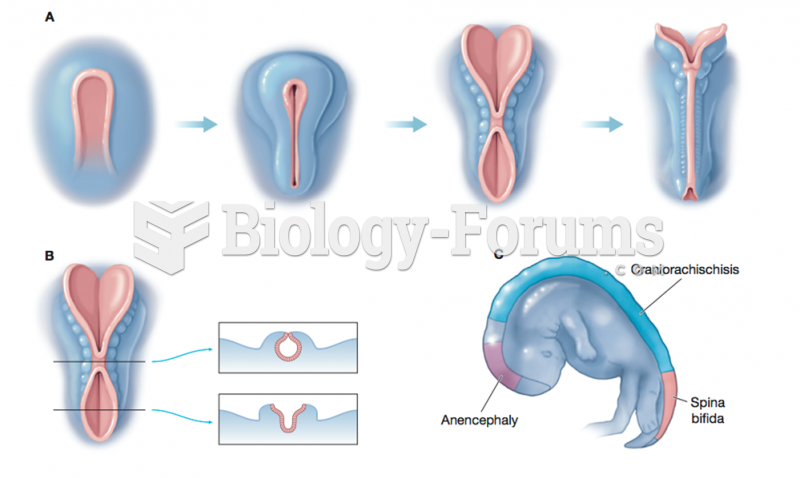Answer to Question 1
It was originally believed that stimulation of the pancreas should be avoided in order to prevent pain, nausea, and vomiting.
The patient had an NG tube placed because of his NPO status and to provide a path for gastric suction to assist with nausea and vomiting. Removal of gastric secretions will decrease the stimulation of the pancreas.
Answer to Question 2
Jennifer Smith, 7/8/2015
61 yo, F, referral from oncology clinic
Onset of disease: Stage IIB invasive ductal carcinoma T2N1miM0
PMH: T2DM
PSH: s/p hysterectomy, s/p R mastectomy, s/p deep inferior epigastric perforator flap reconstructive surgery 6 weeks ago
Meds: metformin
Labs: Glucose 137; CRP 1.1; Chol 210; TG 155; HbA1C 6.8; Hgb 11.9; Hct 36; transferrin 385;
Diet Hx: lost weight 20 lbs d/t chemotherapy and RT; appetite is returning to normal unfortunately; wants to continue to lose weight; interested in changing diet to prevent cancer reoccurrence
Diet: 24-hr recall: 1 c coffee; 1 c Cheerios w/ 1/2 cup strawberries, 1 c almond milk; 2 c coffee, granola bar; 3/4 c tuna salad (with egg and mayo) in tomato, 20 wheat thins, 1 can diet cola; 8 oz grilled filet mignon, 1 lg baked potato (w/butter, salt, pepper), salad (lettuce, spinach, croutons, sliced cucumber) w/ 3 tbsp ranch dressing, 12 oz Riesling wine;3 oz cheese w/10 wheat thins (2926 kcal, 117 g pro, 18 g fiber, 45 fat)
PA: walks dogs for 1/2 mile BID
Alcohol: 1-2/week (wine)
Ht: 5'5 Wt: 175 UBW: 195 UBW: 89.7 IBW: 125 IBW: 140 BMI: 29.2 kg/m2
EER: 1700-2000 kcal/d; EPR: 57-68 g/d; EER (for weight loss): 1300-1500 kcal/day
D: Excessive energy intake related to large portion sizes as evidenced by an estimated energy intake of 2900 kcal/day per 24-hr recall (900 kcal more than estimated needs).
Undesirable food choices related to food- and nutrition-related knowledge deficit as evidenced by regular consumption of red meat and lower amounts of fruits and vegetables.
I: Nutrition counseling and education on portion control, increasing fruits and vegetables, reducing dietary fat intake and red/processed meat consumption.
Goals: Consume 1300-1500 kcal/day
Consume less than 18 oz red/processed meat per week (2.5 oz/day).
M/E: Follow-up in 3-6 months
Monitor weight status, adherence to nutrition therapy
Monitor labs for glycemic control (BG, HbA1C - if available) and CVD risk (TG, Chol, LDL, HDL)
Reassess motivation level/acceptance to lifestyle changes (consider additional diabetes counseling if necessary)







